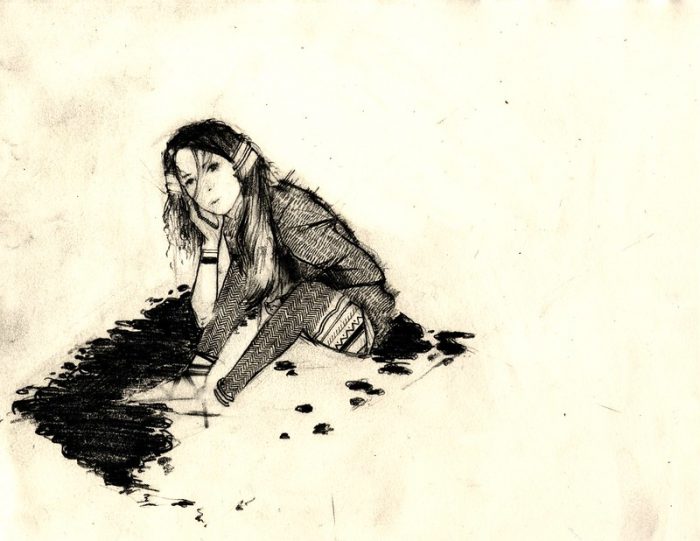As a result of my self-disclosure regarding my journey through depression and mental health, I have faced many questions about my struggles and my perceived lack of fighting at times.
Regardless of what the questions are, they reaffirm something I have known for a long time. People do not understand depression at all. And honestly, it’s no fault of their own. I’ve been told many times that unless you have lived it, you can’t possibly comprehend it.
The knowledge deficit got me thinking, though.
How can you possibly get someone to understand what it’s like to experience the dark doldrums of depression?
How can we make someone understand what it’s like to reside in the pits of hell, day in and day out?
And more importantly, why would we want to make people feel that way?
Well, I am going to tell you.
We have to foster a better understanding and comprehension of clinical depression because the existing misconceptions are harmful. They are harmful to those suffering, and they are harmful to the relationships you may be trying to maintain with someone who is suffering.
Misunderstanding and misconceptions give life to new stigmas because whether someone knows it or not, statements made due to lack of understanding can actually be received as judgmental.
Judgment fuels the stigmas that exist within this society, and those stigmas need to be destroyed.
But those who have lived through depression cannot conquer the stigmas on their own. We must eliminate them by increasing knowledge in those who are not well-informed, thus, enhancing compassion for someone suffering from depression.
You see, those stigmas are perpetuated and given further credence when people fail to recognize that one cannot “get over” clinical depression.
I try my best to explain my struggles with depression to people. I write about it. I speak openly about it, but it’s not enough. Although I had many readers message me and tell me that my words are helpful, I fear one or two articles are not enough.
Tonight, as I prepared to write this, I knew I needed more ammunition. I found an old piece that memorialized some of those feelings, written on January 10, 2015, three days before I finally conceded to my illness and went to the hospital.
I’m sharing some excerpts here because I want people to know exactly what I was feeling. I want them to read my words, the words of a desperate woman in excruciating pain and hope they will help some to understand that depressed people can’t just snap out of it.
Back then, I wrote:
“Time and time again, like a porcelain doll, falling from a shelf, my family scatters to try and catch me and protect me, but I slip through their hands. Boom! I hit the floor and shatter into a million tiny pieces.
I told my husband tonight that I feel as if my body is completely covered with open, weeping blisters. Everything hurts. Everything is intensified. Even air hurts when it hits my skin. I don’t know how else to explain it to him. I hurt.
I hurt so much, and then, I hate myself because I can no longer deny the pain I am feeling. I used to be the master of moving on, and now I am stuck. I have been stifled, debilitated, and disabled by this awful disease.
Feelings of anxiety and worry plague my every thought. I worry that my daughter feels she will never be able to depend on me again. I worry my thirteen-year-old will be forever scarred by this experience. And I hope and pray my six-year-old will have no recollection of it in a few years. I have always been able to stop the pain, ignore the difficult things, shove them far down, and keep moving, but I am now incapable.”
I hope this helps put into perspective how someone suffering to that extent could look through their children and feel nothing but shame and self-loathing.
My motivation to fight depression has been questioned more times than I would like to remember, and I swear it’s only because people can’t wrap their heads around the utter suffering that’s experienced when someone is clinically depressed.
I share this because far too many people still exist in this world who believe it’s a matter of perception on the part of the person afflicted with this f*cking illness. I hate to break it to them, but unrelenting depression can’t be cured via the donning of rose-colored sunglasses, or drinking from a cup that’s half full all the time.
Unfortunately, depression does not come with an on/off switch!
Lack of understanding and empathy stems from inexperience—”count your blessings”—and, dare I say, denial?
I will reiterate, once again, no one’s cup stays full forever. At one time or another in your life, you are going to have a struggle. Some have better foundations, and therefore, they are able to navigate the struggle swiftly. Others, like myself, are not so fortunate.
Regardless, when it comes to depression, you must be mindful of your reactions and your words.
When someone is depressed, incessant positivity can worsen their state of mind, and I promise you, they will shut you out. They will become annoyed and angry because no one wants to hear someone telling them to cheer up or look at the situation differently. I could barely muster up the energy to shower, let alone find something for which to be grateful.
When someone’s days are filled with thoughts of only wanting to exit this earth and they cannot pull themselves out of their personal doldrums of hell, the last thing you want to tell them is to look on the bright side or that things will get better.
They may just tell you to “f*ck off.”
Speaking from experience, I felt it was important to offer a few suggestions as to how you should approach someone you love or care about who’s currently dealing with depression.
I wish someone would have shared these tips with my husband back then, for it would have spared us a lot of struggle:
1. Don’t pressure them.
Let them know you are there for them, and that’s it. Plain and simple.
No “how are you?” No “how are you feeling today?”
Just a simple “thinking of you and here if you need me.” Period.
Perhaps, it was just me, but anytime anyone asked me that, I would just lie. It’s easy to lie when those questions are presented, especially since depression makes people uncomfortable, and if you say you’re fine, they won’t delve any deeper, wiping their foreheads with relief, I’d bet.
2. Let them know you love them, every single day, but don’t expect a lot back.
Remember, they are probably incapable right now. What’s most important is that they know you love them, regardless of how awful they feel about themselves.
3. Do not point out the things for which they should be grateful, happy, live for, and so on.
Trust me. They know; deep down they know, but they just can’t see it right now. They don’t need reminders, for it just reinforces in their minds that they are failing, and depression wins.
4. Remember, it’s not personal.
I’ll say it again. It’s not f*cking personal. It’s a disease. Depression is an illness, and many people become afflicted with it. Don’t make it about you.
5. Don’t imply there’s no reason for them to be unhappy.
Depression is not unhappiness! Whether it’s a family member or a friend, keep in mind that they are ill, and trying to discredit the illness with justifications that they’ve had a good life or are so loved or talented or special mean nothing to them right now. They don’t believe it.
6. Finally, whatever you do, don’t try to figure out what you’ve done to cause it because you didn’t.
Trying to rationalize depression will only make you run in circles and only make the situation worse.
Besides, I’ll say it again: right now, it’s not about you. I understand you love them, fear for them, and just want them to feel better. I understand you want to fix them, but you can’t. I also understand the disappointment you feel when you can’t.
I promise you I do, for I used to see that very disappointment in my husband’s eyes every day.
I remember as I prepared to come home from the hospital after 43 days, the fear I had about needing to be “fixed” for my husband and the worry I had about how he would look at me when he realized I was not “all better” were paralyzing. His unintentional look of sheer disappointment because he just wanted the old Lydia back scared the sh*t out of me.
I spoke to him about it tonight as I was writing this, and he told me that looking back, he knows he did that. But now, knowing what he does about my illness, he wished he hadn’t. He admitted he did not understand it at all, much like many of the people I encounter in my life.
You know, my desire to try and spare him disappointment caused me so much anguish and worry. I even fought with the hospital to postpone my discharge many times because I knew if I got home and he looked at me like that, I would be right back there, or even worse, risked the possibility that I would just give up.
He had no idea the gravity one look from him had or how the force and power it possessed could easily pull me right back down to hell.
Believe me. I wanted to be better too, but it doesn’t happen overnight. It didn’t happen for me for well over a year, and it was baby steps all the way—inpatient treatment, trials of many medications, ECT, endless therapy, IOP programs, and many ups and downs.
Be patient with the person you love. I can guarantee you, they don’t want to disappoint you either. With love and support, they will get through it in their own time, and it will take time.
You see, depression is like an uninvited house guest with an open-ended return flight ticket. It’ll only leave when it’s been told it’s worn out its welcome and its bags are packed and put out on the front porch.
Until then, we are forced to cope with the discomfort, while we patiently and politely wait it out.











Read 27 comments and reply